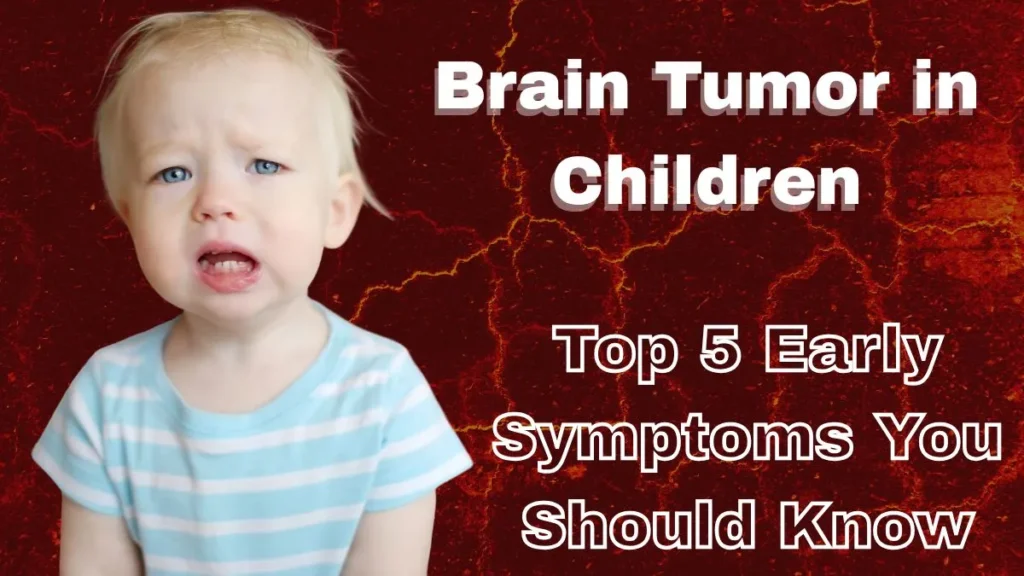
Early treatment of a brain tumor in children can be attained by recognizing the early warning signs, and in turn leads to successful treatment. Pediatric brain tumors are some of the most common pediatric cancer types, even though they are not prevalent. It commonly goes unnoticed with hard-to-notice symptoms that are easily confused with lower serious conditions, which means that awareness is an important thing that should be kept in mind by all parents or caregivers.
The following are 5 premature symptoms of brain tumors in children that parents are not supposed to overlook:
1. Headaches (Morning Headache most specifically)
Of course, there is the possibility that your child is complaining of headaches, particularly early in the morning or even waking up as a result of headaches; this is a red signal. The increase of pressure within the skull as a result of tumors would be why the following headaches happen.
2. Nausea and Vomiting Without Other Illness Symptoms
Unexplained vomiting, especially when not accompanied by typical stomach illness symptoms like diarrhea or fever, can indicate increased intracranial pressure from a tumor.
3. Trouble with balance and coordination
Does your child suddenly become clumsy, or does he/she experience difficulties walking? Poor coordination can be caused by tumors of the cerebellum (the movement portion of the brain).
4. Changes in Vision or Eye Movements
Blurred or double vision, abnormal eye movements, or complaints of not seeing clearly can indicate a tumor pressing on the optic nerves.
5. Behavioral and Cognitive Changes
Sudden mood swings, difficulty concentrating, or a drop in school performance can also be early indicators of a brain tumor.
Catching at an early stage is a decisive factor when considering brain tumors in children. Though not all the headaches or falls signal cancer, having knowledge and looking at the patterns will be a lifesaver. In case your child displays a concurrence of these symptoms or further presents with any single symptom or any cluster of these symptoms, or when they continue to exist, contact a pediatric neurologist promptly.
Top 5 FAQ About Brain Tumors in Children:
McGuiggan medulloblastoma, gliomas, and ependymomas are among the list of most prevalent.
They may manifest themselves at any age; however, most frequently they are diagnosed among children who are between the ages of 5 and 10 years.
Yes, several brain tumors in pediatrics are manageable, particularly when detected early.
Not always. Others can be managed with chemotherapy or radiation, based on type and location.
The rate of growth is dependent on the type of tumor; some are those that grow slowly, whereas others are aggressive.